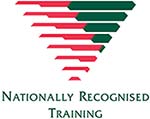Get basic skills and knowledge to make a difference in aged care and disability support
Disability and aged care support workers are essential people in the community. Having the skills to work in a support role in the industry allows you to impact your life and others for the better.
The Entry into Care Roles Skill Set course will give you the skills and knowledge required to provide entry-level support for basic client care. You could work in various roles within the aged care and disability support sectors.
The skill set curriculum focuses on key areas, such as person-centred care, communication techniques, safety protocols, and ethical considerations.
All theoretical classes are conducted online, while workshops are completed on campus in our simulated apartment practical learning environment. The support provided in client care will be predominantly non-direct, to maintain the safety of both yourself and the client in care. Some basic direct client care may be required.
Please note: Students may be required to undertake an assessment of their literacy and numeracy as part of their application process.
 Chisholm is a Registered Training Organisation (RTO) and provides Nationally Recognised Training (NRT). This means you can be assured that our training will provide you with a qualification that is recognised and respected across Australia.
Chisholm is a Registered Training Organisation (RTO) and provides Nationally Recognised Training (NRT). This means you can be assured that our training will provide you with a qualification that is recognised and respected across Australia.
Chisholm courses are subject to minimum and maximum group numbers. Courses may be cancelled or postponed if minimum numbers are not achieved by the start date of the course. Courses may close prior to the start date if the maximum numbers are reached. In that situation, eligible applicants will be offered a place in the next available intake.

